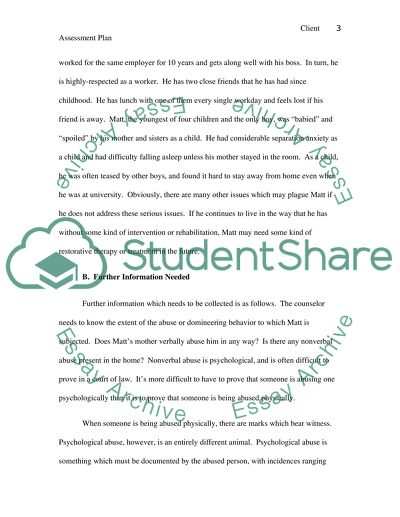Cite this document
(“Client Assessment Plan in Counseling Essay Example | Topics and Well Written Essays - 3750 words”, n.d.)
Retrieved de https://studentshare.org/psychology/1390920-client-assessment-plan-in-counselling
Retrieved de https://studentshare.org/psychology/1390920-client-assessment-plan-in-counselling
(Client Assessment Plan in Counseling Essay Example | Topics and Well Written Essays - 3750 Words)
https://studentshare.org/psychology/1390920-client-assessment-plan-in-counselling.
https://studentshare.org/psychology/1390920-client-assessment-plan-in-counselling.
“Client Assessment Plan in Counseling Essay Example | Topics and Well Written Essays - 3750 Words”, n.d. https://studentshare.org/psychology/1390920-client-assessment-plan-in-counselling.


